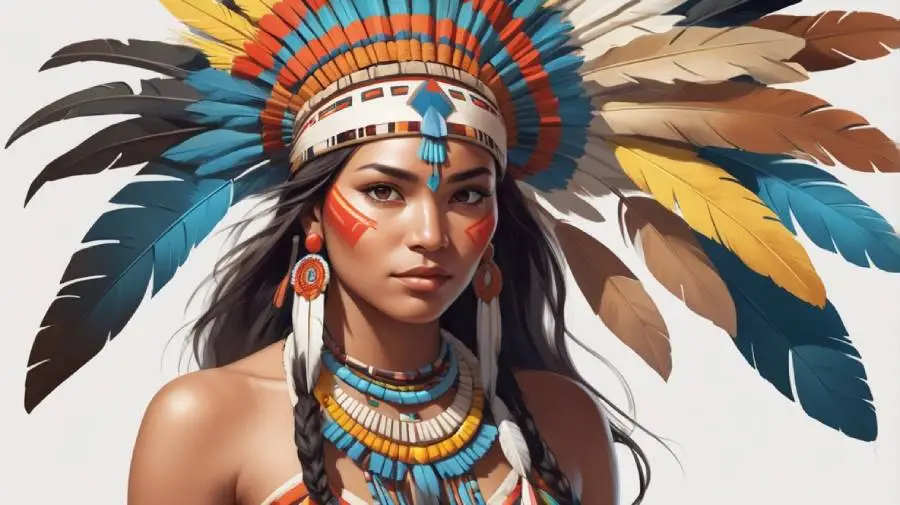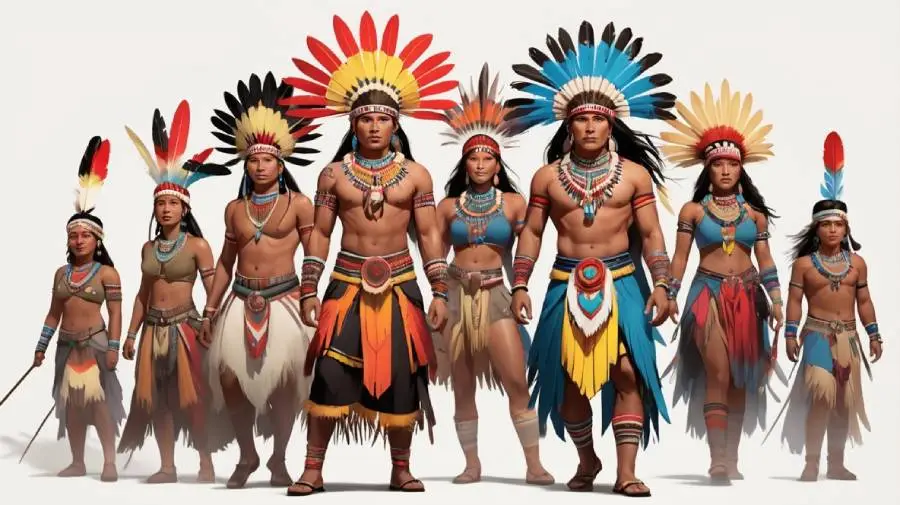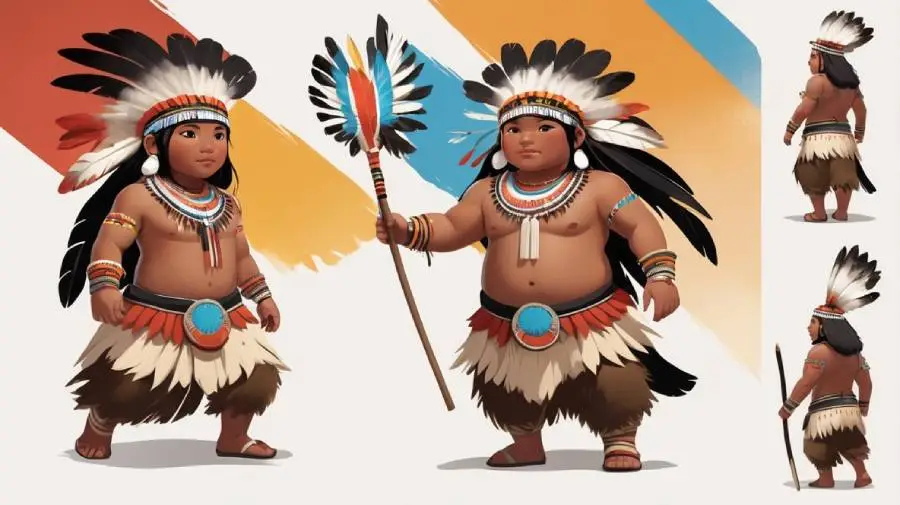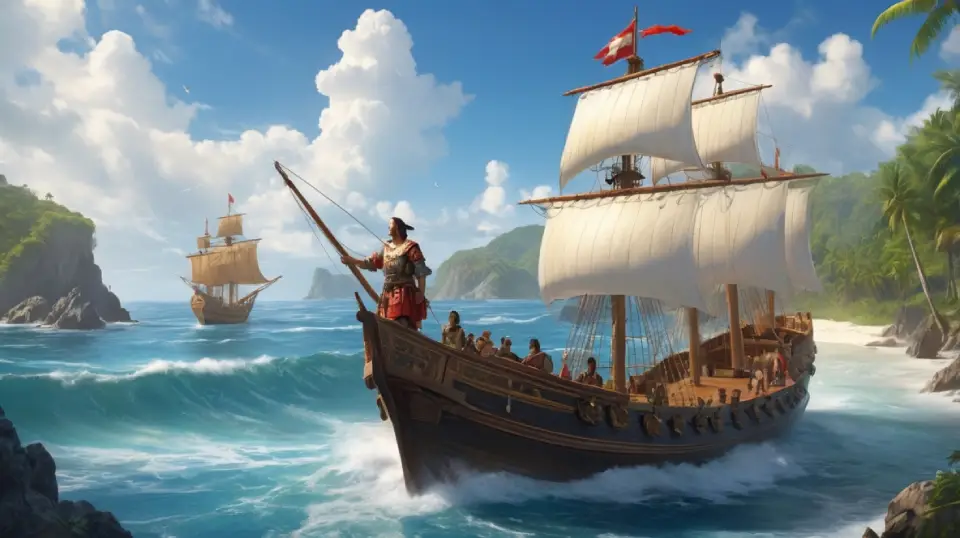Indigenous Peoples Day: A Global Celebration of Heritage and Rights
Indigenous Peoples Day is a significant observance celebrated worldwide to honor the history, culture, and contributions of Indigenous communities. Recognized by the United Nations and celebrated on various dates depending on the country, this day seeks to raise awareness about the challenges that Indigenous peoples face while also recognizing their unique cultural identity, rights, and the impact they’ve had on global history. In this article, we will explore the essence of Indigenous Peoples Day, its history, and why it is vital for the world to come together to celebrate and support Indigenous communities.

What is Indigenous Peoples Day?
Indigenous Peoples Day is a day dedicated to honoring and celebrating the Indigenous communities across the globe. It acknowledges their history, achievements, and ongoing struggles to maintain their rights, culture, and traditions in a rapidly modernizing world. The observance has grown in importance over the years, with more countries, cities, and institutions joining in recognizing the vital role that Indigenous peoples play in shaping a sustainable and diverse future for humanity.
The United Nations and Indigenous Peoples Day
The United Nations (UN) is a key proponent in the recognition of Indigenous Peoples Day, which is observed on August 9 every year. The UN recognizes this day as a moment to reflect on the rights of Indigenous peoples, their cultural significance, and the need for international cooperation to address their issues. By supporting Indigenous rights, the UN encourages nations to engage in dialogue with Indigenous communities to find sustainable solutions to long-standing issues such as land rights, economic inequality, and cultural preservation.

Why Is Indigenous Peoples Day Important?
1. Recognizing Historical Injustice
One of the core purposes of Indigenous Peoples Day is to shed light on the historical injustices Indigenous communities have faced. From colonization to forced assimilation, Indigenous peoples have experienced significant suffering. Observing this day provides an opportunity for the world to recognize these injustices and work towards healing and reparations.
2. Celebrating Indigenous Contributions
Indigenous peoples have made invaluable contributions to society, from agriculture to the arts, and from medicine to environmental stewardship. Indigenous communities have developed sustainable practices over millennia that have helped preserve natural ecosystems. By celebrating Indigenous Peoples Day, we acknowledge their positive influence on society.
3. Raising Awareness of Ongoing Issues
Indigenous peoples still face many challenges today, including land disputes, lack of access to education and healthcare, and environmental degradation. Indigenous Peoples Day serves as a platform to raise awareness about these issues and advocate for better policies and actions that ensure the protection of Indigenous rights and culture.

The History of Indigenous Peoples Day
The idea of recognizing Indigenous Peoples Day was first proposed in 1977 during a meeting of the International NGO (Non-Governmental Organization) conference in Geneva, Switzerland. At that time, a coalition of Indigenous groups advocated for a day dedicated to honoring their cultures and communities. In 1994, the United Nations declared the International Day of the World’s Indigenous Peoples on August 9th, the same day that marks the anniversary of the first meeting of the UN Working Group on Indigenous Populations in 1982.
Since then, several countries, including the United States, Canada, and various Latin American nations, have adopted Indigenous Peoples Day on various dates, though not all have made it an official national holiday.
How is Indigenous Peoples Day Celebrated?
1. Community Events
Across the world, Indigenous communities host cultural events that highlight their traditions, arts, and ceremonies. These can include music performances, traditional dances, storytelling sessions, and food festivals that celebrate Indigenous cuisine. These events often serve as both a form of celebration and a platform for advocacy.
2. Educational Programs and Discussions
Many schools, universities, and community organizations offer lectures, workshops, and seminars about Indigenous history and contemporary issues. These programs are designed to educate the public about the struggles Indigenous peoples face and the contributions they have made to humanity.
3. Public Demonstrations and Advocacy
In some places, Indigenous Peoples Day is marked by peaceful demonstrations advocating for the protection of Indigenous rights, land sovereignty, and environmental conservation. These protests are aimed at raising public awareness and pushing for legislative changes that better protect Indigenous communities.
4. Government Recognition
Some governments use Indigenous Peoples Day as an opportunity to make official declarations regarding Indigenous rights or to pass new legislation designed to protect Indigenous communities. This may include measures to ensure Indigenous participation in political processes or to grant Indigenous groups greater autonomy over their land and resources.
Key Challenges Faced by Indigenous Peoples Today
While Indigenous Peoples Day highlights the cultural and historical significance of these communities, it also serves as a reminder of the many challenges they continue to face. Some of the primary issues include:
1. Land Rights and Land Grabs
Many Indigenous communities have been forcibly displaced from their ancestral lands over the centuries. In modern times, these communities continue to battle large corporations, governments, and other powerful entities who seek to exploit their land for natural resources, agricultural development, or urban expansion.
2. Discrimination and Marginalization
Indigenous peoples often face systemic discrimination in education, healthcare, and employment opportunities. This marginalization leads to higher rates of poverty, unemployment, and health disparities within Indigenous communities.
3. Cultural Erosion
The rapid pace of globalization and cultural assimilation has resulted in the erosion of Indigenous languages, traditions, and practices. Many Indigenous communities are working hard to preserve and revitalize their cultural heritage, but these efforts are often hindered by the pressures of modern society.
4. Environmental Degradation
Indigenous peoples are often at the forefront of environmental conservation efforts. However, they face significant challenges from deforestation, mining, and climate change. Their knowledge of sustainable living and ecological preservation is often ignored or undervalued in favor of economic development projects that harm their land and resources.
The Role of Indigenous Peoples in Global Sustainability
Indigenous peoples have long been recognized as stewards of the environment. Their deep connection to the land and centuries-old knowledge of natural ecosystems make them crucial allies in the fight against climate change. By recognizing their rights and working alongside them, we can learn from their sustainable practices and find ways to address global environmental issues more effectively.
Indigenous Peoples and Human Rights
Human rights violations against Indigenous peoples remain a serious global issue. These violations include displacement, violence, discrimination, and the denial of basic rights such as access to education and healthcare. By supporting Indigenous communities through legislative reforms, international treaties, and local advocacy, we can work toward greater human rights protections for these vulnerable populations.
How You Can Support Indigenous Communities
1. Educate Yourself and Others
One of the most powerful ways to support Indigenous peoples is by educating yourself about their history, struggles, and contributions. Share this knowledge with others and help raise awareness about the issues facing Indigenous communities.
2. Support Indigenous Businesses
Indigenous entrepreneurs and businesses often face significant barriers to success. By supporting Indigenous-owned businesses, you contribute to the economic empowerment of Indigenous communities.
3. Advocate for Policy Change
Advocating for policies that protect Indigenous land rights, sovereignty, and cultural heritage is essential. Support initiatives and organizations that work on behalf of Indigenous peoples, and encourage lawmakers to prioritize Indigenous rights.
4. Respect Indigenous Traditions
When visiting Indigenous communities or participating in cultural events, always show respect for their traditions and customs. Be mindful of cultural appropriation and ensure that any engagement is respectful and appropriate.
Conclusion: Celebrating and Supporting Indigenous Peoples
Indigenous Peoples Day serves as a powerful reminder of the importance of recognizing and supporting Indigenous communities worldwide. By honoring their culture, history, and contributions, we can work toward a more inclusive and sustainable future for all. It is essential that we continue to raise awareness about the challenges they face and advocate for meaningful change that respects their rights, preserves their heritage, and promotes social justice.
On this day, let’s stand together to celebrate the richness of Indigenous cultures and work toward a future where Indigenous communities can thrive in peace and prosperity.
FAQs
1. When is Indigenous Peoples Day celebrated?
Indigenous Peoples Day is celebrated on August 9th each year by the United Nations, but many countries and communities may observe it on different dates depending on their local traditions and history.
2. Why do we celebrate Indigenous Peoples Day?
Indigenous Peoples Day is celebrated to honor the history, culture, and contributions of Indigenous peoples, as well as to raise awareness about the issues they face, including land rights, discrimination, and cultural preservation.
3. How can I support Indigenous communities?
You can support Indigenous communities by educating yourself about their history, supporting Indigenous businesses, advocating for policies that protect their rights, and respecting their cultural traditions.
4. What are some common challenges faced by Indigenous peoples?
Indigenous peoples face challenges such as land disputes, environmental degradation, systemic discrimination, and cultural erosion. These issues can significantly impact their communities’ well-being and sustainability.
5. What role do Indigenous peoples play in environmental conservation?
Indigenous peoples have a deep connection to the land and have developed sustainable practices over thousands of years. Their knowledge and practices are essential in addressing global environmental issues like climate change and biodiversity loss.


